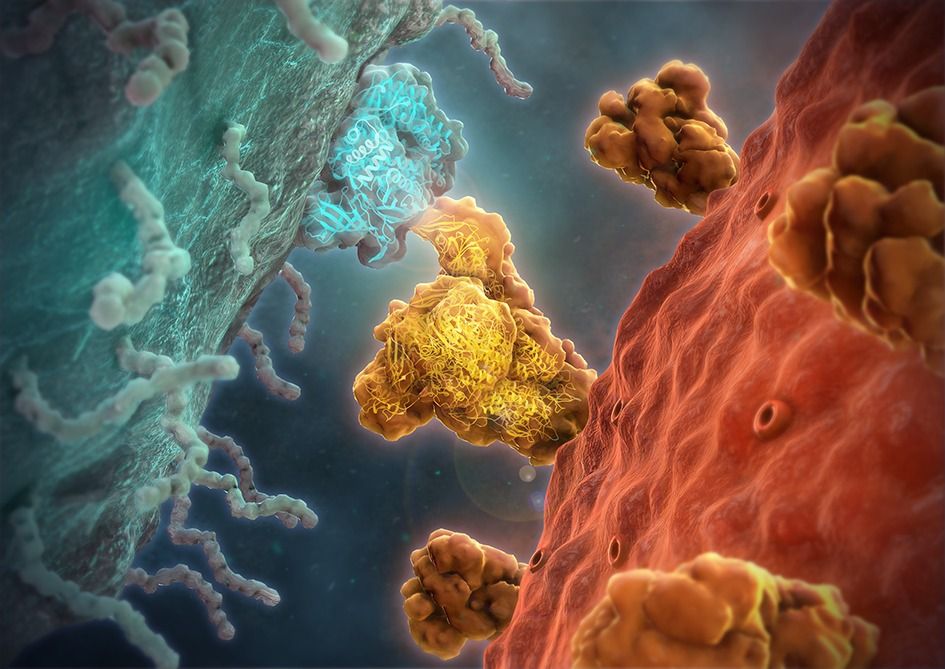First step towards medicine against new coronavirus (SARS-CoV-2)



O.o circa 2019.
A scientist in Wisconsin has invented a bandage that uses an electrical field to speed up the time needed for a wound to heal. It could one day lead to treatments for baldness and obesity.
STEVE INSKEEP, HOST:
This next story reveals another of the wonders of electric power. A scientist in Wisconsin invented an electrical bandage, which speeds up the time it takes a wound to heal. This same approach, we’re told, may someday help overweight people shed pounds and bald people to grow new hair. Let’s plug in this story by NPR’s Joe Palca.

Google the word “jugaad,” and you’ll find a plethora of results, from simple dictionary definitions to advice that Western companies should adopt it as part of their practices. Jugaad — a colloquial Hindi, Bengali, and Punjab word — simply means “hack,” and captures the pervasive Indian spirit of finding a low-cost — and sometimes quite resourceful — solution to any problem. If this word doesn’t make one think of entrepreneurship, I don’t know what does.
Indeed, the small-scale biotech facilities scattered all across India, offering products with extremely high adoption rates such as microbial-based biofertilizers, capture the essence of jugaad. In India, finding solutions to the problems at hand is very natural, a way of life, essentially — and any solution, especially an economically sensible one, will be readily adopted. With such a pervasive ideal, India seems like the perfect setting for synthetic biology and biotech-based innovation.

Democratic presidential candidate Rep. Tulsi Gabbard  Tulsi GabbardLawmakers call for universal basic income amid coronavirus crisis Tulsi Gabbard calls for giving Americans K a month during coronavirus outbreak Biden consolidates majority support in new Hill/HarrisX 2020 poll MORE (D-Hawaii) called for introducing a universal basic income (UBI) of $1,000 a month until coronavirus “no longer presents a public health emergency.”
Tulsi GabbardLawmakers call for universal basic income amid coronavirus crisis Tulsi Gabbard calls for giving Americans K a month during coronavirus outbreak Biden consolidates majority support in new Hill/HarrisX 2020 poll MORE (D-Hawaii) called for introducing a universal basic income (UBI) of $1,000 a month until coronavirus “no longer presents a public health emergency.”
“Most Americans don’t have that safety emergency bank account even for a short term, what to speak of if you’re talking about weeks, or in this case people are looking at potentially months,” Gabbard said in an interview on Hill. TV.
Her proposal, H.R. 897, would give a UBI of $1,000 per month to all adult Americans “until COVID-19 no longer presents a public health emergency.”
The DEA-led initiative focused on members of Cartel de Jalisco Nueva Generacion (CJNG), one of the most dangerous drug cartels in the world, who were monitored by federal law enforcement officials over a six month period.
The agencies announced that the operation resulted in 600 arrests nationwide, 350 indictments and seizures of money and drugs.
Sharing the full story, not just the headlines.

Amazon cracked down on coronavirus price gouging. Now, while the rest of the world searches, some sellers are holding stockpiles of sanitizer and masks.
An Amazon merchant, Matt Colvin, with an overflow stock of cleaning and sanitizing supplies in his garage in Hixson, Tenn. Credit… Doug Strickland for The New York Times.

“Well, we don’t really know why some people feel so bad after this dietary change. Is it related to a detox factor? Is it due to a carb withdrawal? Is there an immunologic reaction? Or is this a result of a change in the gut microbiome? Whatever the reason is, it appears the symptoms attributed to the keto flu may happen, not to everyone but to some people, after “cleaning up” their diet.”
For some people, a ketogenic diet appears to cause fatigue, nausea, and irritability. These symptoms are nicknamed keto flu, but the exact cause is unclear.
Dreams of human immortality may remain so, but extending our lives beyond 100, even 150 years, can soon become a reality. ‘The Future is Now’ explores ground-breaking technology that might help us to slow down the ageing process and overcome our physical limitations.
3D-printing of brand new human organs, controlling bionic prosthetics with your mind, or invading your body with disease-fighting microrobots. Hosts Kate and Talish bring you the latest developments in biomedical engineering.
Learn what artificial organs have to do with gravity, or see how the world appears to blind people who have had their vision restored with bionic eyes and a chip. Hear from researchers and futurists about their predictions and warnings regarding the future of science.
SUBSCRIBE TO RTD Channel to get documentaries firsthand! http://bit.ly/1MgFbVy
FOLLOW US
RTD WEBSITE: https://RTD.rt.com/
RTD ON TWITTER: http://twitter.com/RT_DOC
RTD ON FACEBOOK: http://www.facebook.com/RTDocumentary
RTD ON INSTAGRAM https://www.instagram.com/rtdocumentaries/
RTD LIVE https://rtd.rt.com/on-air/
Canadian research team says work will help inform global response to worsening pandemic.

Asia’s richest man announced his intention on Friday to ship 500,000 testing kits and 1 million masks to the U.S. in an effort to combat the coronavirus pandemic.
Jack Ma’s charitable foundation and his China-based company’s foundation, the Alibaba Foundation, have also sourced and donated supplies to other countries being hit by the virus, including Japan, Korea, Italy, Iran and Spain.